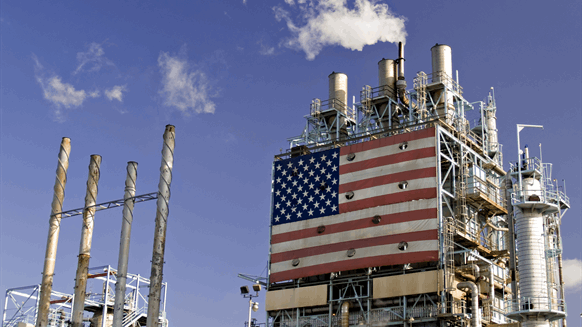The U.S. Department of the Interior (DOI) announced Thursday that it proposed changes to leasing regulations for oil and gas development on public lands, with the goal of raising rent and royalty rates for the first time in decades, as well as strengthening bond requirements.
The amendments, introduced by the department’s Bureau of Land Management (BLM), also seek to keep fossil fuel extraction away from wildlife habitats and culturally important sites.
The plan, now in the consultation phase, “would ensure a balanced approach to development, provide a fair return to taxpayers and ensure that drilling does not conflict with the protection of important wildlife habitats or cultural sites,” the DOI said in a news release.
It would also “disincentivize speculators or less responsible actors,” the agency added.
The tax terms of the lease are central to the pending onshore oil and gas lease rule.
“Federal onshore oil and gas royalty rates are historically lower than state-issued leases and federal offshore leases; in fact, onshore royalty rates had not been increased for more than 100 years before the Biden-Harris Administration took office,” the statement said. “Similarly, bonus levels have not been increased for 60 years, while minimum bids and rents have remained the same for over 30 years.”
The proposal seeks to codify provisions of the Inflation Reduction Act, passed in August 2022 to strike a balance between energy security and climate resilience, as well as the Jobs and Infrastructure Investment Act of 2021, popularly known as the Bipartisan Infrastructure Act.
For royalties, the BLM has proposed a minimum of 16.67 percent, to take effect in 2032. For renewed leases, the royalty would mean “the rate used in determining the royalty that applies to new leases at the time of reinstatement plus 4 percentage points, plus an additional 2 percentage points for each draft of the reinstatement proposal,” as stated.
For area rates, the proposal seeks an annual rate of $3 per acre or less than one acre for the first two years after the land lease is issued, $5 per acre for the next six years, and $15 per acre thereafter.
The minimum bond would also be streamlined to no less than $150,000, consolidating the current individual, state, national and unitary lease/operator bonds into one. “The BLM has not increased its minimum bond amounts, which are currently $10,000 for individual lease bonds, $25,000 for state bonds, and $150,000 for national bonds, since 1951 (state and national bonds) and 1960 (individual lease obligations).
The current rates no longer provide “an adequate incentive for companies to meet their reclamation obligations, nor do they cover the potential costs of reclamation of a well in the event of failure to meet such an obligation,” the draft says, adding, “This current bond requirement increases the risk that taxpayers will cover the cost of well reclamation in the event the operator refuses to do so or files for bankruptcy.”
The DOI statement noted that the department has made more than $1 billion available from the bipartisan Infrastructure Act through 2021 to clean up abandoned wells, including on private land. “This proposed rule is intended to prevent this burden from falling on the taxpayer in future years,” the statement said.
If adopted, the new rule would also charge license bidders $5 per acre, or fraction of an acre, for submitting expressions of interest.
To protect the environment and culturally significant sites, the criteria for granting leases will prioritize “land that would not impair the proper functioning” of wildlife habitats or corridors and “land that would not impair the cultural significance” of historic properties, sacred sites, “and other high-value leased land,” the draft states. Areas with recreational value or “other uses or important resources” would also be pushed to the back of the line.
“This proposal to update BLM’s oil and gas program is intended to ensure fairness to the taxpayer and balanced and responsible development as we continue to transition to a clean energy economy,” said BLM Director Tracy Stone-Manning. “It includes common sense and necessary fiscal revisions to the BLM program, many directed by Congress.”
But industry lobby group the American Petroleum Institute warned that the rule would jeopardize energy supply and affordability.
“Responsible development of federal lands is critical to meeting the growing demand for affordable and reliable energy while reducing emissions,” the group, which claims a membership of 600 companies, said in a statement. “In the midst of a global energy crisis, this action by the Department of the Interior is yet another attempt to add even more barriers to future energy production, increases uncertainty for producers, and may further discourage investment in oil and natural gas.
“This is a troubling approach from an administration that has repeatedly acted to restrict essential energy development.”
The BLM has set two months for the public to submit comments and said it would hold five public meetings in August and September as part of the consultation process.
To contact the author, please email jov.onsat@rigzone.com


